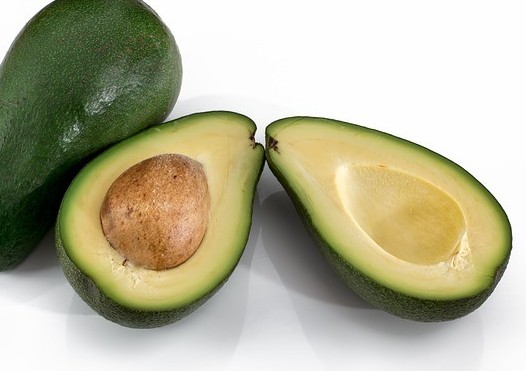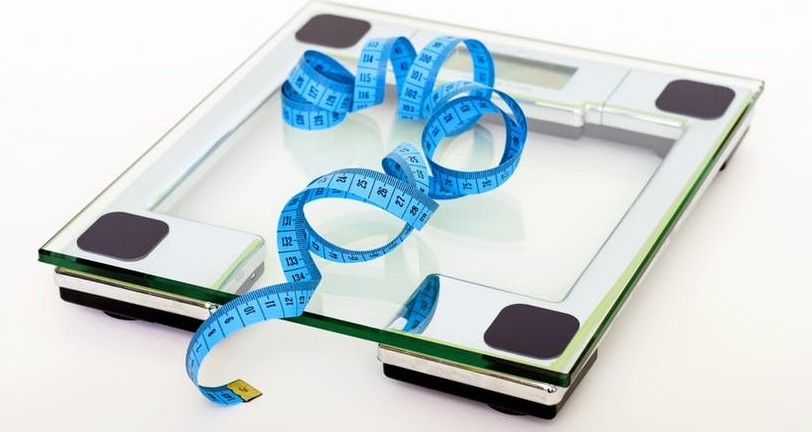The ketogenic diet is becoming more and more popular. However, you may be asking yourself, how do you lose weight with a ketogenic diet? Isn’t it mostly a high fat diet? How in the world can a high fat diet trigger weight loss? It seems counter-intuitive based on all the dietary advice that we have been given over the last few decades. Once you understand the diet, it becomes easier to follow and stick to!
What is the Ketogenic Diet?

The ketogenic diet is a diet that was created in the early 1900’s to treat epilepsy. It is a diet that is high in fat, moderate in protein and extremely low in carbohydrates. The daily carbohydrate intake should be less than 20 grams, which is only a few berries or a serving of broccoli.
Since the carbohydrates are reduced drastically, the fat is increased. When this happens, the body enters a state called ketosis, where is switches from fueling itself on glucose to burning fats. The body turns the fats into ketones, which are molecules that fuel the brain with energy.
It can take a few days or weeks on a ketogenic diet before the body becomes efficient at burning fat and ketones for fuel instead of carbohydrates.
In addition to burning fat as fuel, the ketogenic diet also lowers the insulin levels. Lower insulin levels and increased ketones are the reasons that the ketogenic diet has so many wonderful benefits.
The ketogenic diet has somewhat of a cult following, and for a good reason. The ketogenic diet makes you feel great! Keto-ers feel more satiated from their foods throughout the day. They have increased energy levels, both physical and mental, leading to fewer cravings, more self-control, more physical activity, and lower caloric intake.
How the Ketogenic Diet Helps Weight Loss
The ketogenic diet physically switches your body from fueling itself with glucose to using fats for fuel. However, there are a few other things that help with weight loss.
The ketogenic diet has a higher protein intake.
Since the ketogenic diet limits your carbohydrate intake, it also limits your food options. This can be frustrating at first, but it will noticeably reduce your calorie intake, which is essential for fat loss.
The body starts conerting fat and protein into carbs for fuel in a process called gluconeogenesis. This process helps you to burn even more calories each day.
On the ketogenic diet, you feel very full. It is a very satiating diet due to the high intake of fats. This is also due to changes in hunger hormones, including ghrelin and leptin.
The ketogenic diet will also improve insulin sensitivity which can assist in metabolism.
There is some research that suggests that a ketogenic diet reduces lipogenesis, which is the process of converting sugar into fat.
Some studies also indicate that the ketogenic diet rapidly increases the amount of fat that you are burning during rest, daily activity and through exercise.
How the Ketogenic Diet Improves Overall Health
The ketogenic diet not only aids in weight loss, but it improves your overall health. It has been demonstrated to heal metabolic diseases. Some of the reasons for the improvement in metabolic markers include:
The reduction in carbohydrates on the ketogenic diet keeps the blood sugar and insulin levels under control. A high carb diet keeps these indicators constantly elevated and can lead to damage over time.
The ketogenic diet reduces insulin resistance. Insulin resistance can cause health issues like inflammation, high triglycerides and fat gain. Additionally, the ketogenic diet can help to restore normal insulin function. Studies have demonstrated that healthy insulin function can fight inflammation, which is the underlying cause of most diseases.
On the ketogenic diet, you increase your intake of good fats. These will improve your “good” HDL cholesterol levels. It also drasticcally reduces chronic inflammation, which is linked to metabolic syndrome.
The combination of all these factors can remarkably improve your health and protect you against disease.
Starting the Ketogenic Diet – What to Expect

Even though the ketogenic diet has many wonderful health benefits. The first few days and weeks of the ketogenic diet are an adaptation process. Some people feel slightly worse before they feel better. The first few days, you can expect to crave carbohydrates as you are adjusting to eating fats instead of carbohdyrates.
In the first week of the ketogenic diet, people typically a very fast drop in weight. This can be anywhere from a few pounds to as many as ten! This is due to the fact that keto causes you to initially release water weight from drastically cutting your carb intake.
This isn’t something to be alarmed about. It is a sign that your body is working its way to fat burning mode, or ketosis.
After about two weeks on the ketogenic diet, weight loss will occur at a slower, but more steady pace. This is also the time where your body is becoming keto-adapted. It is switching from burning carbs to burning fat.
On average, fat loss is about one to two pounds per week after you become fat adapted. This can be more or less depending on how much you have to lose. The closer you are to your ideal goal weight, the slower you will notice weight loss. As your weight decreases, your total caloric needs each day decreases. This is because as your weight decreases, your total caloric needs each day decreases.
What to Eat on the Ketogenic Diet

The ketogenic diet is roughly 75% healthy fat, 20% protein and 5% carbohydrates. Since you are using percentages, you are going to need to calculate your macronutrients (carbohydrates, proteins and fats). The best way to do this is by sing a keto calculator like MyFitnessPal.
Fatty cuts of meat like sausage and bacon will become staples on the ketogenic diet. You should also cook liberally with butter to meet your fat intake. Leafy greens and berries will fit into a ketogenic diet. Healthy proteins such as beef, chicken, fish and seafood and eggs will become essential elements of your ketogenic diet.
It will be important to gain a general idea of how many carbohydrates are in the foods that you eat. Once you know how many grams of proteins, fats and carbohydrates you can have, you will want to track your progress. If you don’t notice that you are losing weight, you may want to look for hidden carbohydrates in your foods and make adjustments to your diet.
Ketogenic Diet Support

One of the best things that you can do is gain support from other people who are following the ketogenic diet. I tried to do this diet on my own and often cheated on it. However, when I joined support groups on facebook and started reading ketogenic diet blogs and watching vloggers on youtube, I found it much easier to stick with the restrictions of the ketogenic diet and start to embrace the foods and lifestyle of the ketogenic diet.

I tried so many diets in my life and I can say that keto diet is on of the best diets that can help in weight loss. I like that this diet will not only help in weight loss but also with overall health, which is very important. I would like to recommend it to all people who are looking for safe methods for weight loss.
Thanks for your endorsement. As I lower my carbohydrate intake, I notice my health and wellness increases dramatically.
Interesting , I my self know nutrition an exercise do work in conjunction plus a good mindset for it. Because just like any other diet you’re putting your body into a fat burning state and guess what its a stressful process to be in , Do you have any advice after finishing a ketogenic diet to return to a normal way of eating or will this just have to be this way?